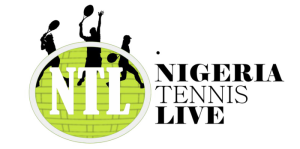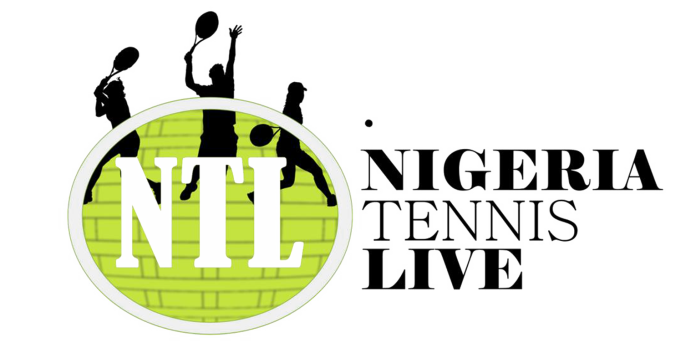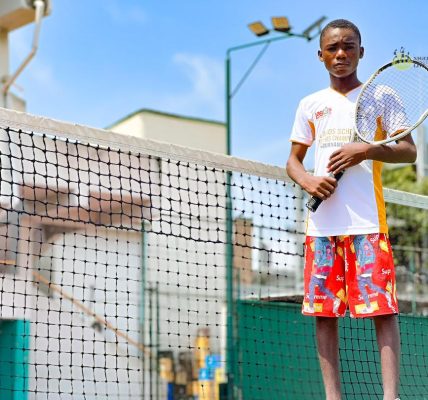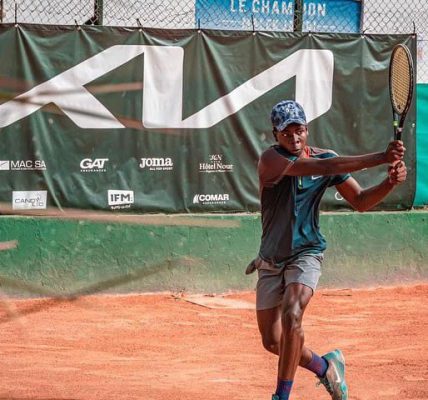Former Nigerian number one tennis player, Jonathan Igbinovia, told DAMILARE OKUNOLA in this interview, how he intends to ensure that Nigerian tennis soars again.
You rarely come around from Atlanta, what brought you back on this occasion?
Well, the driving factor for coming back with my boys is to put Nigeria on the driving seat and ensure that our tennis grows from its present position. The boys have been with me for about six months so, I brought them to see their level of improvement.
For how long have you been out of the country?
I actually attended college there, that took another four years before I turned pro. Then, I played alongside other guys and took Nigeria to Group two of the Davis Cup, a really tough group. I’ve also played a lot of futures like the Governor’s Cup and I am the last Nigerian to win it before it became ITF-certified.
No Nigerian player has thrived in the Championship ever since, what could be the problem?
There is no system in place and that is what we are trying to fix. The players don’t train well, they don’t get the right exposure and it reflects in their games. We should not just sit down and complain about it, we have to do something to salvage the situation and that’s why I am here with my boys; to help the Federation, the players and the coaches. We also have to educate the sponsors and spectators to believe in what we are doing. There has to be a system which everybody can trust. They shouldn’t trade blames. We all should work harder to ensure that this country gets back up there with other countries.
With Nigeria’s peculiar situation, how assured are you that the Sponsors will accept the proposals?
I believe it is workable because we also did it with my Academy in the US and it worked. Tennis is now big in Atlanta because we made the people believe in the system that we created.
What is the name of the Academy?
It a country club of the south called ‘Rip and Row’ and that is what I want to do here in Nigeria, to have a proper Academy here. This will enable us get talents from here who we can give scholarship to Atlanta, to play tennis as well as attend college. I did it and I believe anyone else can do it.
You quit tennis quite early, what informed that?
It is the same thing I’ve been saying, there was no system for me to fall back on. I played really well but there was no support to fall back on so I had to quit quite early when I was up there.
How big is your Academy in the US?
At the moment, there are about eighty kids there and I earned the respect of the Americans with what I have been doing with the kids over there. They all believe that I am an asset to their country and the American Government offered me a job to build American players but I turned it down because I wanted things done my own way, using my own setting. I want everybody to get involved even the less privileged.
You took two players to the US, it must have cost you a whole lot.
I just had to give back to tennis that put me where I am today so I had to do it. Training in a proper Academy in the US costs nothing less than eight thousand dollars, not adding the cost for the kits and other necessities but I just had to do this for Nigerian tennis and I hope it will start yielding fruits soon. We also want other sponsors to see it from that perspective, that is what I am saying right now; they should help save Nigerian tennis.
What was it like playing against top players in the world during your hey days?
It was pretty good for me, I played a lot in the third round of the Junior US Open and that, for me then, was no mean feat. I played against the likes of Federer and I won a tournament in the Men’s after defeating Robbie Gienepri, a top fifteen player in the world at the time, and believed that I proven to my country that I could do it. Robbie was a player who defeated Andy Murray in the Semis of the US Open at the time. I had done enough to show there was somebody from here who could go out there and make them proud. But guess what, for one year, I stayed at home. No tournament to play and I cried throughout because my ranking dropped. I was ranked 300 in the world then but the people were not educated enough about the game so, they couldn’t build on the momentum. There’s something missing, the X-factor. That’s what I’m trying to do with the tennis Academy which I call the X-factor.com and I promise you that in five or ten years’ time as long as I live, you’ll see a Nigerian flag flying at the Grand Slams. I know what it takes to do that, I tell you.
Having played against the likes of Roger Federer, what’s your take on his present decline?
You have to understand that he still plays because of his love for the game and not just the reward so, the focus is different from some years back. That’s what I try to tell my boys, you can have a powerful forehand and hit hard shots but those won’t help you win anything if the focus is not there. The mentality I’m putting in my boys is ‘the only way my opponent will defeat me is if I lose the ball’, that’s what I always want them to practise.
For how much longer will you be in the country?
I will be returning soon but I want to pass a message to people out there; that I cannot do this great project on my own. We are pleading with everybody to come out and help lift Nigerian tennis. If as small as I am I could take these kids to the US, then the big men out there can do a lot more. The Federation is always aware, so they should keep them informed and do all they can to help save Nigerian tennis.
When is Jonathan getting married?
I always like to keep that part of my life out of public glare because right now, it is not top on my priority list. I have a passion for music and I’m as talented in it as I am with tennis so I have been doing a lot of music in my spare time but something keeps pulling me back to tennis. Maybe I have an unfinished business with tennis before I go back to my music.








